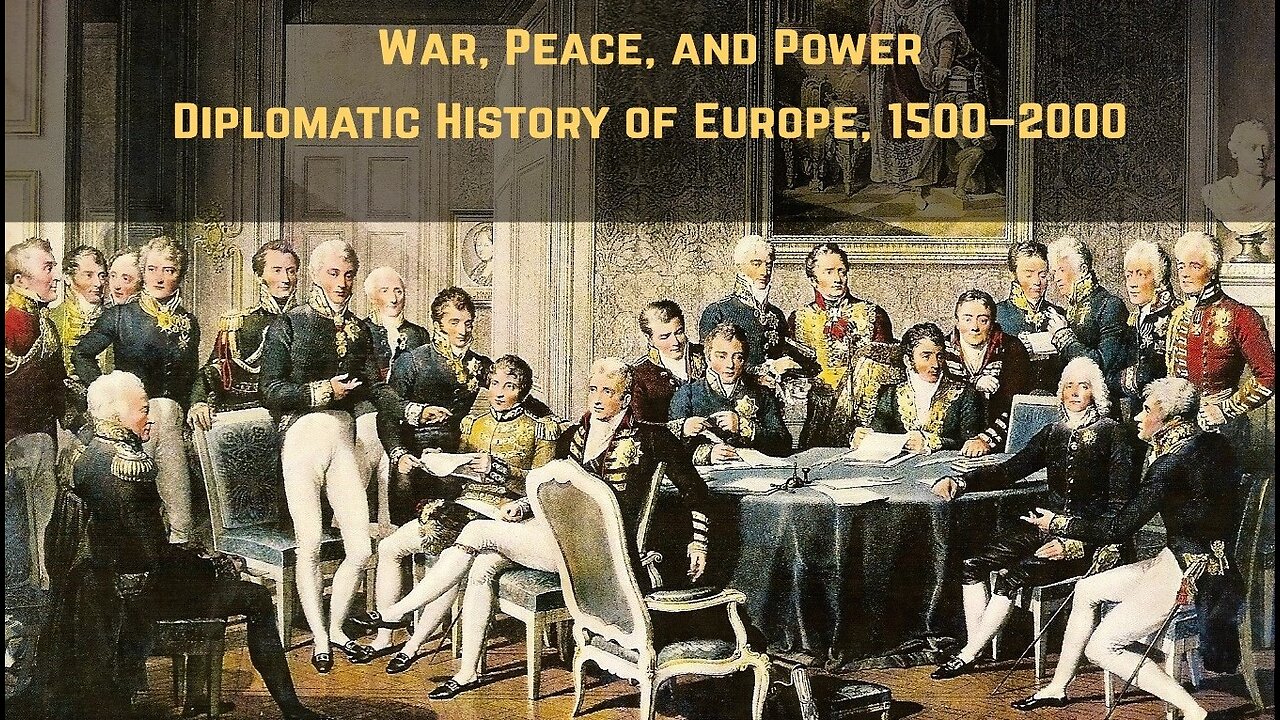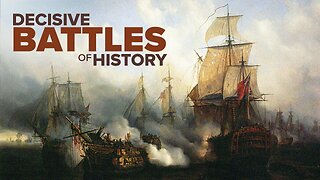Premium Only Content

Diplomatic History of Europe 1500 - 2000 | The Challenge of 1848 and Napoleon III (Lecture 16)
Lecture 16: This lecture covers the period from 1848 to 1870 and examines two surprises in the realm of diplomacy: extensive revolutions in 1848 that did not produce war (as had been the case after the French Revolution), and a new Napoleon who rose to power. Initially, a profound challenge to the conservative order established at the Congress of Vienna came with the series of revolutions that broke out across the continent in 1848—the “Springtime of Nations.” A testament to the growing importance of Nationalism and liberal ideas, the revolutions were nonetheless put down and general war avoided. In the wake of the revolution, the nephew of Napoleon Bonaparte came to power in France as the emperor Napoleon III. This enigmatic figure championed Nationalism and Liberalism and hatched diplomatic conspiracies to redraw the European map, yet those same intrigues led to his undoing in the Franco-Prussian War of 1870.
Essential Reading:
A. J. P. Taylor, The Struggle for the Mastery of Europe, 1848–1918, pp. 1–45.
Supplementary Reading:
Matthias Schulz, “A Balancing Act: Domestic Pressures and International Systemic Constraints in the Foreign Policies of the Great Powers, 1848–1851,” German History, 21.3 (2003), pp. 319–46.
-
 30:17
30:17
The Great Courses
1 month agoDecisive Battles of World History | 1942 Midway - Four Minutes Change Everything (Lecture 34)
158 -
 1:57:15
1:57:15
Side Scrollers Podcast
16 hours agoZelda Actress NOT a Dude, Darth Vader’s Lightsaber Auction, Evil Elmo Update | Side Scrollers LIVE
24.1K2 -
 1:49:58
1:49:58
Omar Elattar
5 days agoLUKE BELMAR: From Broke To $50 Million | Crypto Predictions | Truth About God, Bible & The Matrix
3.34K -
 10:17
10:17
Dr Disrespect
1 day agoIt's Time To Get Serious
113K17 -
 1:56:18
1:56:18
The Michelle Moore Show
16 hours ago'Parasites and Worms...What You Need To Know' Guest, Kim Rogers 'The Worm Queen' The Michelle Moore Show (July 16, 2025)
12.7K14 -
 33:32
33:32
Solar Groove Muzic
1 day ago $0.02 earnedSUMMER AFRO HOUSE | Amalfi Coast 2025 (Adam Port, Avicii, The Weeknd, Black Coffee, Diplo)
6.07K -
 39:22
39:22
The Brett Cooper Show
2 days ago $4.24 earnedBieber’s Big F-You To Hollywood & Trump Gets Ratio’d Over Epstein | Episode 48
8.8K11 -
 2:41:02
2:41:02
FreshandFit
5 hours agoFormer Escort vs Trad-Wife HEATED DEBATE
199K68 -
 2:04:47
2:04:47
Inverted World Live
7 hours agoDoomsday Clouds and Mega Tsunamis
94.1K8 -
 2:29:52
2:29:52
Badlands Media
13 hours agoDevolution Power Hour Ep. 372: Trump’s “I Told You So” Arc and the Collapse They Can’t Hide
82.4K25